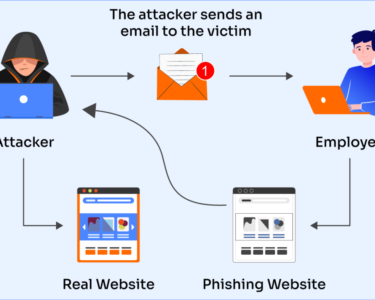
Digital Security: The Ethical Imperative
In the rapidly evolving digital landscape, protecting our online data and privacy has become paramount. As individuals, organizations, and governments navigate the complexities of cyberspace, the ethical imperative to uphold digital security cannot be overstated.
1. Protecting Personal Information:
Digital security breaches can have devastating consequences for individuals. Stolen personal information can be used for identity theft, fraud, and cyberbullying. By implementing strong passwords, using multi-factor authentication, and being cautious about sharing sensitive data online, we can safeguard our privacy and protect ourselves from harm.
2. Ensuring Business Continuity:
Cyberattacks on businesses can result in lost revenue, data breaches, and damage to reputation. Implementing robust cybersecurity measures is crucial to protect business assets, maintain customer trust, and ensure uninterrupted operations. Ethical businesses must prioritize the security of their networks, systems, and data to prevent disruptions and ensure business continuity.
3. Safeguarding Critical Infrastructure:
Modern society relies heavily on critical infrastructure, such as power grids, transportation systems, and communication networks. Digital security breaches in these areas can have far-reaching consequences for public safety, health, and economic stability. Governments and organizations responsible for managing critical infrastructure have an ethical obligation to implement stringent security measures to protect these essential services.
4. Preventing Espionage and Theft:
Digital espionage and data theft are prevalent threats in the digital age. Governments, corporations, and individuals may be targeted by malicious actors seeking to steal sensitive information for illicit purposes. By adopting encryption, implementing access controls, and conducting regular security audits, we can minimize the risk of unauthorized access and protect confidential data.
5. Promoting Trust and Innovation:
Digital security is essential for fostering trust in online interactions and enabling innovation. Individuals must feel confident in the security of their data and businesses must trust that their systems are protected from external threats. By investing in digital security measures, we create a secure environment that encourages innovation and supports economic growth.
Ethical Considerations:
In pursuing digital security, it is essential to consider ethical implications. Surveillance technologies and government regulations must be carefully balanced to protect individual privacy and prevent abuse of power. Privacy laws must be updated to keep pace with technological advancements and ensure that citizens’ data is used responsibly. Ethical considerations should guide all decisions related to digital security, ensuring that the pursuit of security does not undermine fundamental rights or societal values.
Conclusion:
Digital security is an ethical imperative that requires collaboration and vigilance from all stakeholders. By implementing robust cybersecurity measures, protecting personal information, securing critical infrastructure, preventing espionage and theft, and promoting trust and innovation, we can create a secure digital environment that benefits individuals, businesses, and society as a whole. Ultimately, the ethical imperative of digital security is to ensure the safety, privacy, and prosperity of all in the digital age.



